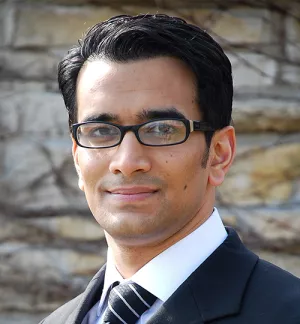OVER the next few weeks, you can expect a barrage of media to try to persuade you that debates between political party leaders are the coming thing.
They will argue that they are the cure our unhealthy political system needs, that they will inject a dose of glitzy competition into our stale old electoral process, and that they will help you make a better democratic choice.
They are wrong, for at least three big reasons.
The first is simply that party leaders' debates measure the wrong qualities. In the US, when John McCain or Barack Obama squared off against each other in a TV debate, every viewer came away with a personal opinion of each candidate.
If you watched the debates, you'll probably have felt this yourself. But step back a little, and ask yourself what these opinions were based on.
When we watch TV candidates talk, most of us base our feelings about them on qualities which have nothing to do with whether they would be a good leader or not. We measure how fluently they speak, how genuinely they smile, and how sincere they seem.
We notice that one seems to have done his policy homework while another has been badly briefed; one seems to have taken media presentation classes and knows to look directly into the camera, while the other splits his attention between the cameras and the studio audience.
We compare their demeanours: do they seem shifty like Nixon in his famous TV debate against Kennedy, or slick like Clinton against President Bush senior? Do they pause too much? Do they hesitate and reach for unfortunate words? Are they ugly?
In short, TV debates would encourage us to judge the leaders we send to Westminster with the values of Hollywood.
The danger is that in the minds of many viewers, cogent policies take second place to whiter teeth or a stronger jawline.
These are the wrong qualities by which to measure potential statesmen. Being likeable doesn't necessarily mean you're a good manager of people or a team.
It doesn't mean you have the skills to manage gargantuan projects like putting all NHS patients' records on computer or reforming schools. It doesn't necessarily mean you're honest. But most of all, it doesn't mean you have the leadership qualities to lead a political party, let alone a country.
The second danger of TV debates is that they give politicians a set of perverse incentives. In the long run, if party leaders' debates were to prove a regular feature of British democratic environment, it would change who succeeded in politics, and who decided to enter in the first place.
Imagine the front-ranking opposition front-bencher, with decades of work and experience behind him, forced to conclude he was underqualified to lead his party because he lacked a full head of hair. Or the shadow cabinet team, waiting to listen to speeches by two leadership contenders, knowing before either candidate has stepped on to the podium who they will vote for as leader by looking at their faces alone.
These are the incentives that TV debates encourage, and they are bad for politics.
The third reason is that TV debates are part of the process of dumbing down. If we want leaders who can ensure the security and wellbeing of the country, then we shouldn't choose them based on how they look under TV lights.
If we want politicians who take smart decisions based on sound principles and an honest reading of the evidence, then we shouldn't choose them based on their ability to smile.
There is perhaps one counter argument which we should consider, and that is the value and virtue of political oratory. Barack Obama has shown how even in the age when the compacted communications of Twitter and texting seem to be the norm, good political oratory can still lift hearts.
Surely a party leaders' TV debate here in Britain would provide a golden chance for talented party leaders, now and in the future, to shine, even to inspire?
There are two answers to that. The first is that the best oratory comes from speeches, not debates. The public will watch a speech hoping for poetry, but at a debate, they want answers. Whereas speeches are an opportunity for scale and scansion, debates demand quick draw putdowns.
Where speeches lend themselves to vision, debates demand accuracy. In short, however much we may want to foster British politicians who can inspire like Obama, TV debates are not the means to do it.
The second answer is that in this country we already have one of the best venues for political oratory any politician could wish for - parliament.
Steeped in a rich history of great orators, like Gladstone, Bevan and Churchill, not for nothing is it called 'the Mother of Parliaments'. That it is rarely watched is surely an effect of mundane oratory, not its cause.
No TV debate in a hastily-assembled television studio could match it as a ready made televised invitation to young politicians to polish their oratory. Rather, TV debates are likely to bring the political debates down into the mud, and encourage politicians to serve us pre-cooked gags and laugh lines.
TV debates may be good for the TV channels which want them, but they would be bad for British democracy.
Azeem Ibrahim is a Research Scholar at the International Security Programme, Kennedy School of Government at Harvard University and a World Fellow at Yale University.
Ibrahim, Azeem. “We Mustn't Judge Leaders by Values of Hollywood.” The Scotsman, October 27, 2009


